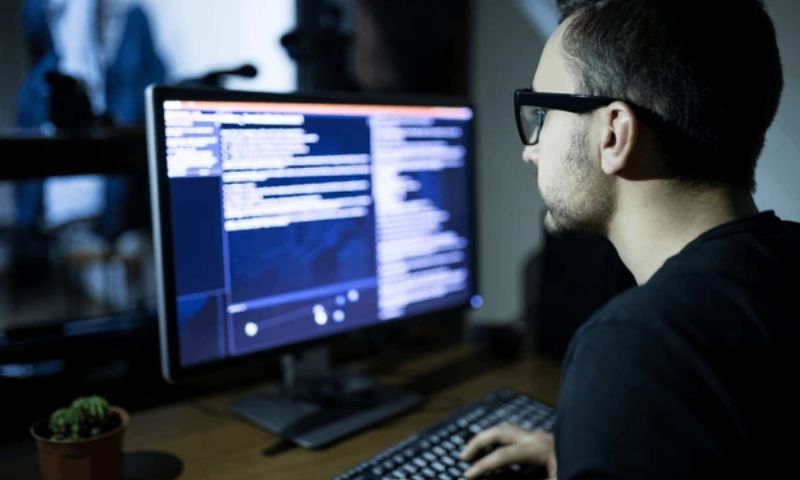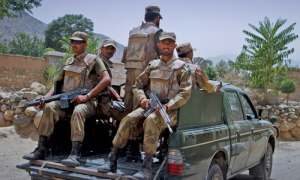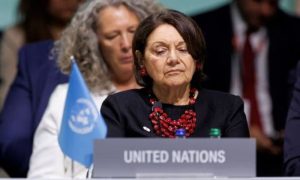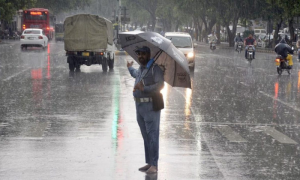Social media has developed into a potent instrument that influences both peace and war, acting as a battlefield for international information and misinformation campaigns coordinated by both state and non-state actors. These activities are driven by a variety of factors, including financial incentives, personal ambitions, and ideological and political motivations that frequently combine to further each party’s objectives.
Social media has democratised the power to affect situations, especially in contested environment, with many individual players adding to the online conversation, each acting as a propaganda entity in their own right. But there’s a dangerous side to this democratisation: terror organisations use online forums and social media to spread their stories, wage psychological warfare, enlist new members, and obtain intelligence. Terrorists as well as inimical forces take use of the asymmetric advantage of the internet, even in the absence of state actors, by using it as a haven to plot assaults meant to polarise society by demonising their targets and stoking fear and hatred.
The government of Pakistan recently created two new organisations: the Digital Rights Protection Authority, which is still awaiting approval, and the National Cyber Crimes Investigation Agency (NCCIA), which will take the role of the FIA’s Cybercrimes Wing. Critics point to several instances of journalists being sued under the PECA legislation to support their claim that it is just a front for a crackdown on online dissent. Factually these assertions are mitigated when we witness an unbridle use of social media turning into a novel form of digital terrorism.
In Pakistan, disinformation is a widespread and multifaceted problem that is intricately entwined with the nation’s diverse social and lately technical environment. Tailored stories frequently arise to further political or ideological goals among stark differences in racial, religious, intellectual and political perspectives. During elections, political parties take advantage of these differences by spreading false information to influence the attitudes of voters. The internet’s quick growth and the popularity of social media as a main news source have made it easier for misleading information to spread quickly online. The emergence of fifth-generation warfare, which is marked by manipulation, social engineering, cyberattacks, and disinformation, has made this situation worse. Safeguarding a country’s critical infrastructure is crucial in the face of 5GW’s unconventional threats, as combat increasingly moves beyond traditional boundaries into the information and cyber domains. The basic weapons of the Fifth Generation Warfare are not tanks and missiles, but diplomacy, TV, radio, newspapers, social media, films, and the economy.
The Pakistani army has been the subject of a pernicious wave of irrational misinformation that has recently resurfaced on social media. When used as a weapon by adversaries, this propaganda aims to create division among army leaders and soldiers while discrediting the organisation under the pretence of advancing political objectives. Traditional weaponry like tanks and missiles are replaced in the domain of Fifth Generation Warfare (5GW) by economic pressure, media manipulation, and diplomatic manoeuvres. Instead of using actual battlefields, this conflict is fought in the arena of public opinion with the goal of influencing minds. Taking use of a country’s people to further their own agendas, the adversary plans operations to demonise the Pakistani army by associating the military’s alleged involvement in political activities. Pakistan’s stability and security are at risk due to these initiatives, which are intended to brainwash and sway the youth’s opinions. Recognising that such disagreement might be a powerful instrument in destabilising the country, the enemy is working to poison the minds of Pakistani youngsters against the army. The use of social media with impunity and in the absence of comprehensive law fare, a volatile wave of polarisation has stuck our society. This wave has caused a substantial adverse effect to our society.
India takes pride in being the largest democracy in the world, but recent acts, such as crackdowns on social media and raids of the Twitter office, have sparked questions about the right to free speech. China, on the other hand, has its own restricted social media infrastructure, showcasing various methods of online expression. Despite being comparatively open in this aspect, Pakistan has problems with certain people abusing their right to free expression. Foreign media frequently presents Pakistan in a bad light, which feeds misunderstandings. The philosophy in issue aims to counteract the propagation of extremist narratives that incite violence, extremism, hatred, and instability, especially in the digital sphere where information spreads quickly and people don’t have enough time to confirm its veracity. Although Western nations have devised countermeasures to tackle these issues, Pakistan encounters considerable obstacles in executing current laws and is ill-equipped to successfully execute them.
The Chief of Army Staff (COAS) General Asim Munir has drawn attention to the fact that this problem transcends Pakistan’s boundaries and that disinformation manipulation poses a worldwide threat. Social media platforms function as intermediaries in moulding public perception and impacting pressure group operations. Prior to now, the FIA was in charge of initiatives to combat cybercrime, which included digital protection, cybersecurity, and data privacy. But the difficulty is in approaching these complex problems as a single field when, in fact, they require specialised knowledge. In order to combat threats from both the inside and the outside, each authority must build specialised skills instead of depending only on broad-based programmes like the National Cyber Crimes Investigation Agency. These are techniques that are consistent with Fifth Generation Warfare, which is to create uncertainty. It is imperative that concerted efforts are put in to sensitise public about the impending threat of digital terrorism. There is a dire need to introduce and implement stringent regime to counter this growing menace. An effective law fare module coupled with equally robust implementation regime is the need of the hour.

























